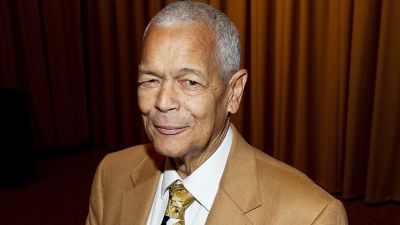Life Coach Offers Holistic Approach to Brand Loyalty

Most brands begin to lose loyalty because they’ve reached a level of success but stopped valuing. They start taking for granted the business relationships that got them there. Making matters worse, they stop listening, learning, innovating, and leaning into their customer or client base. Even well-known companies have been severely compromised (Sears, Wells Fargo, K-mart, etc.) because of their inability to reinvent.
People can make up their mind about you without ever engaging you, your product, or your service. Consumers can simply talk into their smart device, research your business within milliseconds, and either engage you or rule you out completely. That’s why today’s relationships with clients, customers, and employees are more critical than ever before in the volatile nature of business.
D. Ivan Young is a holistic life and relationship coach who offers brands advice on how to retain customer loyalty.
“Inasmuch as this applies to startups, it is especially true for well-established and long-standing brands that tend to take their place in their market for granted. A business relationship miscarriage, be it internal or external, cannot only significantly hinder growth but potentially implode the most successful of brands,” says Young.
“Just because your business, or company, was on the top-performing list last year or even last month, doesn’t mean that people are going to stay loyal to you. Loyalty is primarily gauged by purses [and] wallets; personal desires and objectives; and emotional connection. This is true of clients, customers, or employees,” he adds.
Young shares several strategies for improving business and professional relationships and leverage brand loyalty:
Be Open to Change
Close-minded CEOs and owners are just bad for business. Those who buy your product or service, your front line people, are far more in touch with vulnerable areas in your operation than most owners and executives will ever be. Listening to their ideas, feedback, suggestions and/or complaints could potentially save or make you thousands of dollars.
Invest in Good People
There are too many options out there for both customers and employees. The cost of losing good people far exceeds the profit you make when keeping them. Not only do you lose time and money by bringing in new people and getting them up to speed for productivity, your customers may have had amazing relationships with the good people you lost. Having an “everybody is disposable” mindset is not only foolish but downright senseless. When it’s all said and done, most people do business or are in business with people—not the business entity itself.
Recognize and Reward
The best ways to cultivate career relationships are by creating an enriching and thriving workplace and rewarding positive performance. This can be done by doing simple things such as allowing an employee to come in late, leave early, or take a day off; it’s a small price to pay and goes a long way when it comes to loyalty. Easy systems to implement are employee recognition systems such as “Employee of the Month” or a certificate/award or commensurate productivity bonus.
Create Culture of Service
Some companies do this extremely well by doing one simple thing, they enculturate everyone on the team regardless of rank, title, or position. A prime example is the restaurant manager who takes pride in cleaning the bathroom, or the sales manager who goes above and beyond to help a salesperson close a deal and celebrates him in front of the client. When the entire team reflects the brand by building a culture of service, this subsequently signifies “people” values and builds loyalty.
Keep People First, Always
One of the greatest wins in business is to acquire and KEEP a customer or client for life. One sure way to achieve this is to resolve a dispute or conflict in their favor. Failing to do so could be costly, especially if it’s in your power to do so not barring some unreasonable anomaly. Your brand’s best commercial is someone who has had a great experience with you. Even if it costs you a few dollars to make it “worthwhile” for them, the long-term rewards of repeat business, company performance, and marketplace reputation will far exceed the small sacrifice.






